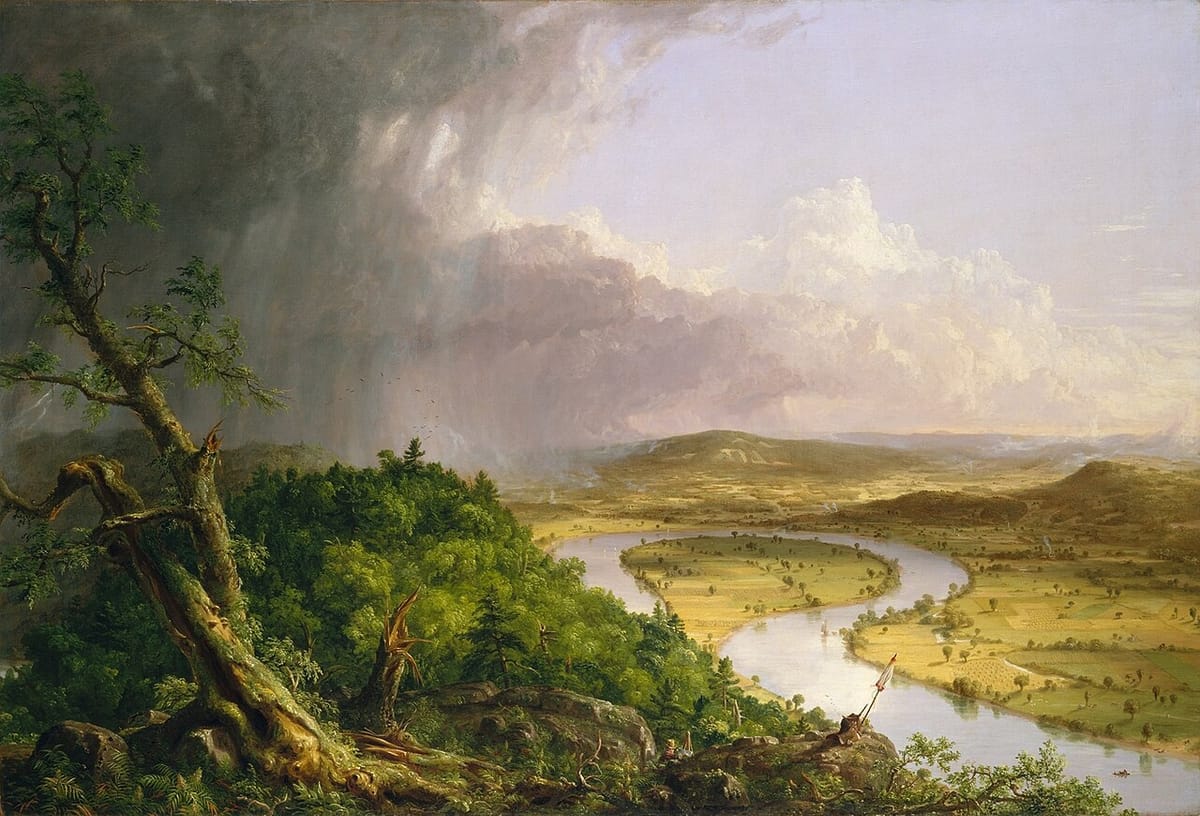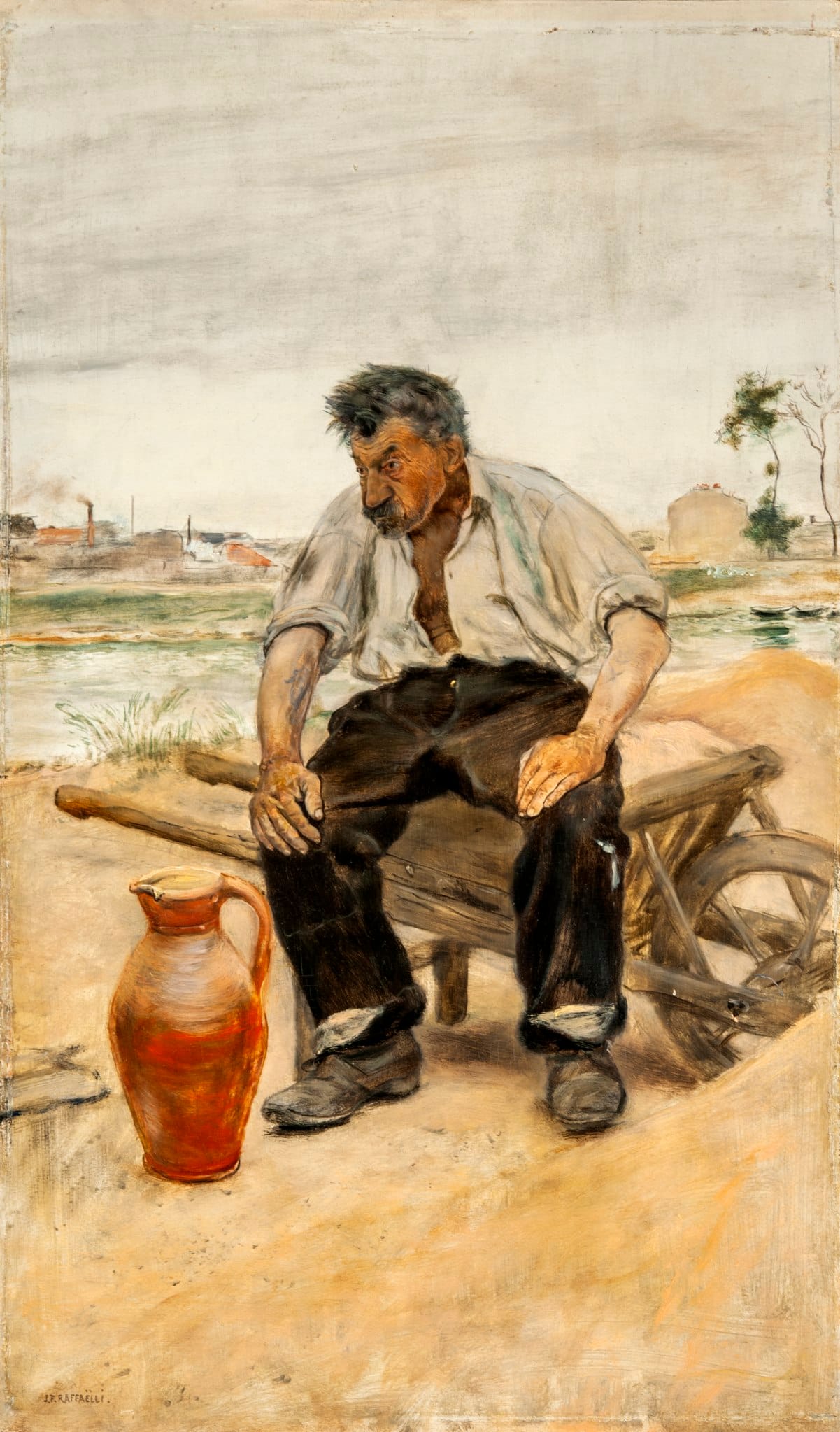"The Art of Being Free". Tocqueville, Bellah and the and the Moral Ecology of Democracy
From Tocqueville in 1835 to Bellah in 1985, the question endures: can liberty survive when the habits of heart and mind that once joined freedom to virtue—through family, faith, and civic life—begin to dissolve into an “unencumbered self”?

Nearly two centuries after its publication, Alexis de Tocqueville’s Democracy in America remains a mirror in which modern democracies can still see their flaws. Its endurance lies not in its portraits of frontier life or early institutions, but in its moral anthropology—the study of how free people sustain their own freedom. Tocqueville, the aristocratic son of a France scarred by revolution, crossed the Atlantic to dissect its soul. What he discovered was that liberty does not rest on constitutions alone; it depends on invisible foundations—the mœurs, or habits of the heart—that give life to laws. A century and a half later, Robert N. Bellah would revive that phrase to describe the same fragile moral ecology, showing that Tocqueville’s questions about freedom’s cultural foundations had become America’s own.
For Tocqueville, democracy is perpetually in tension with itself. Equality liberates individuals from hierarchy, yet tempts them toward isolation and conformity. The “habits of the heart”—formed in families, congregations, and local assemblies—counteract those centrifugal forces by cultivating moderation, self-restraint, and civic affection. They are democracy’s unspoken architecture: moral disciplines that prevent equality from dissolving into apathy or comfort. His warning was stark: liberty is a moral achievement that must be constantly renewed in the character of its people.
"Despotism may govern without faith, but liberty cannot. Religion is much more necessary in the republic... How is it possible that society should escape destruction if the moral tie be not strengthened in proportion as the political tie is relaxed?" — Alexis de Tocqueville, Democracy in America Book 1, Chapter XVII
Born in 1805 to a Norman noble family nearly extinguished during the French Revolution, Tocqueville grew up in its shadow. The trauma left an imprint, defining his life's work as a mixture of attraction to liberty and dread of revolution.
When he arrived in America in 1831, officially to study prisons, Tocqueville was in truth studying democracy itself. He wanted to know whether equality—what he called “a providential fact”—could coexist with dignity and order. America, which arrived at democracy without revolution, was the ideal laboratory: a nation without feudal remnants, where liberty and equality had grown together from the start. Traveling from Boston to New Orleans, he sought the secret of this equilibrium. What he found was not perfection but practice: a web of small institutions that taught citizens how to be free. “Town-meetings are to liberty,” he observed, “what primary schools are to science; they bring it within the people’s reach”. (Book 1, Chapter V)
Tocqueville reversed the order of political explanation. Geography and laws matter, but he was "convinced that the most advantageous situation and the best possible laws cannot maintain a constitution in spite of the manners of a country". By mœurs, he meant “the whole moral and intellectual condition of a people”—their beliefs, customs, and unspoken rules of behavior. These invisible habits, more than any document, sustain the republic.
Within mœurs, Tocqueville saw habits of the mind (pragmatic common sense, distrust of abstraction) and habits of the heart (self-restraint, civic empathy, moral responsibility). Together they formed a civic psychology binding individual autonomy to public virtue. He credited American women in particular, noting that "morals are the work of woman". Within the domestic sphere, they instilled the sentiments—modesty, self-command, respect for others—that prepared citizens for self-government.
Within mœurs, Tocqueville saw habits of the mind (pragmatic common sense, distrust of abstraction) and habits of the heart (self-restraint, civic empathy, moral responsibility). Together they formed a civic psychology binding individual autonomy to public virtue.
Mœurs, in this sense, were the connective tissue between the individual and the state. When those habits erode, liberty loses its foundation. Tocqueville’s insight—that character is the precondition of freedom—remains profound.
Tocqueville’s admiration for America was tempered by foreboding. Equality, he saw, generates its own perils: individualism, conformity, materialism, and a new form of paternalistic tyranny.
He used the term individualism to name democracy’s quietest danger: “a mature and calm feeling, which disposes each member of the community to sever himself from the mass of his fellow-creatures” (Book 2, chapter II). It was not simple selfishness, but a moral withdrawal into the private circle, leaving society at large untended. In democracies, equality dissolves the old social chains, leaving each citizen alone before the state and threatening "in the end to confine him entirely within the solitude of his own heart". Individualism, multiplied across society, produces civic anemia. A people of self-enclosed hearts is easy to rule.
Thus not only does democracy make every man forget his ancestors, but it hides his descendants, and separates his contemporaries from him; it throws him back forever upon himself alone, and threatens in the end to confine him entirely within the solitude of his own heart. (Book 2, Chapter II)
This isolation feeds the tyranny of the majority—not the tyranny of force but of opinion. In America, he wrote, “the majority raises very formidable barriers to the liberty of opinion: within these barriers an author may write whatever he pleases, but he will repent it if he ever step beyond them.”. Citizens fear ostracism more than persecution; the body is left free, “but the soul is enslaved”.
Then comes materialism. With ranks leveled, the desire for comfort dulls public virtue. Americans, he noted, pursue well-being with a "feverish ardor," haunted by "strange melancholy... in the midst of their abundance". Equality’s promise breeds anxiety more than contentment.
These trends converge in his most haunting vision discussed in book 2, chapter VI: What Sort Of Despotism Democratic Nations Have To Fear. The answer is soft despotism. It is not terror but tutelage—an “immense and tutelary power” which “takes upon itself alone to secure their gratifications, and to watch over their fate.” It is "absolute, minute, regular, provident, and mild," seeking to keep citizens "in perpetual childhood". It "covers the surface of society with a net-work of small complicated rules, minute and uniform," until the nation is reduced to "nothing better than a flock of timid and industrious animals, of which the government is the shepherd". Citizens, having surrendered responsibility, are relieved "all the care of thinking and all the trouble of living".
Today, the gentle despotism Tocqueville imagined reappears as digital paternalism: systems promising convenience and safety at the cost of agency. The digital state flatters equality while disciplining freedom—governing not by coercion but by customization. The peril is the same: citizens relieved of the burden of judgment.
Today, the gentle despotism Tocqueville imagined reappears as digital paternalism: systems promising convenience and safety at the cost of agency. The digital state flatters equality while disciplining freedom—governing not by coercion but by customization. The peril is the same: citizens relieved of the burden of judgment.
Tocqueville did not despair, because he saw in America countervailing practices that trained citizens in the "art of being free."
- The Township: The primary school of liberty, forcing individuals out of private spheres to deliberate, compromise, and act in concert.
- Voluntary Associations: "Americans of all ages, all conditions, and all dispositions, constantly form associations". These replaced aristocratic hierarchies with horizontal cooperation. “The heart is enlarged,” he noted, “by the reciprocal influence of men upon each other”. Through association, individualism was tamed by fellowship.
- Religion: Providing moral ballast, religion strengthened freedom paradoxically by separating itself from government. It "must be regarded as the first of their political institutions," restraining democratic passions, teaching self-limitation, and anchoring desire beyond the purely material.
- Self-Interest Rightly Understood: A pragmatic morality where Americans practiced virtue as enlightened prudence. Recognizing that community welfare advanced their own long-term interest, they internalized civic duty. It was a humble but powerful ethic reconciling ambition with solidarity.
Together, these habits formed an ecosystem of freedom: local deliberation, voluntary action, moral discipline, and practical cooperation. They proved that liberty’s survival depends less on genius than on habit.
In 1985, the sociologist Robert N. Bellah and his colleagues—resurrected Tocqueville’s language in Habits of the Heart: Individualism and Commitment in American Life, one of the most ambitious moral anatomies of modern democracy since Democracy in America. Their inquiry, conducted through hundreds of in-depth interviews with middle-class Americans, sought to determine whether the “moral ecology” that once undergirded the republic—those moeurs Tocqueville saw as the connective tissue of freedom—had survived into the late twentieth century. Their conclusion was sobering.
Bellah’s team found that individualism had become the dominant moral language of American life. It persisted in two distinct forms. The first, utilitarian individualism, descended from Benjamin Franklin’s “prudential” ethos of self-help, competition, and achievement; it defined the self through work, success, and self-reliance. The second, expressive individualism, born of the therapeutic culture of the 1960s and the human-potential movement, defined the self through authenticity, feeling, and personal fulfillment. Both, however, enthroned the autonomous self as the supreme moral authority. “In the absence of any objective criteria of right and wrong,” Bellah observed, “the self and its feelings become our only moral guide.” The Tocquevillian citizen, who learned virtue through shared action, risked dissolving into the therapeutic individual, who seeks meaning in private introspection.
The Tocquevillian citizen, who learned virtue through shared action, risked dissolving into the therapeutic individual, who seeks meaning in private introspection.
The authors’ case studies—figures like the career-driven manager, or the nurse who described her private creed as “Sheilaism”—offered sociological portraits of what Tocqueville had warned against: a people “shut up in the solitude of their own hearts.” The mediating institutions Tocqueville revered—churches, civic associations, voluntary committees—appeared to have withered. The “school of freedom” he celebrated in townships and associations had been replaced, Bellah argued, by the “psychological workshop” of the self. The arena of moral formation shifted from the town hall to the therapist’s couch. In this new moral economy, the language of duty, vocation, and common good gave way to the idioms of choice, lifestyle, and personal growth.
The arena of moral formation shifted from the town hall to the therapist’s couch. In this new moral economy, the language of duty, vocation, and common good gave way to the idioms of choice, lifestyle, and personal growth.
By the turn of the twenty-first century, this diagnosis had deepened. Robert D. Putnam’s Bowling Alone (2000) quantified the cultural intuition Bellah had described qualitatively: membership in civic, fraternal, and religious organizations had plummeted; trust in neighbors and institutions had eroded. The intricate Tocquevillian web of associations had frayed into a collection of self-contained lives. Later communitarian theorists such as Michael Sandel and Charles Taylor elaborated on this moral atomization, warning that when the “unencumbered self” becomes the measure of all things, the preconditions of liberty—shared moral purpose and civic friendship—collapse.
Recent surveys by the American Academy of Arts and Sciences echo those earlier fears, describing an age of “hyper-individualism, historical amnesia, and mutual mistrust.” Tocqueville’s nightmare of democratic isolation—the “soft despotism” that governs souls more by solitude than by chains—now reads as cultural reportage. The American heart, once enlarged by civic reciprocity, has contracted into the private rhythms of self-care and self-expression. Tocqueville’s citizen, tempered in the discipline of association, risks becoming Bellah’s solitary seeker: free, but unformed.
Tocqueville’s nightmare of democratic isolation—the “soft despotism” that governs souls more by solitude than by chains—now reads as cultural reportage. The American heart, once enlarged by civic reciprocity, has contracted into the private rhythms of self-care and self-expression.
Tocqueville’s America is largely gone. Yet his insight endures: a free society depends on moral habits no constitution can enforce. Freedom is sustained not by ideology but by character—by citizens trained in self-command and trust. Robert Bellah called for a “reconstruction of the moral ecology.” Tocqueville would have understood. The work of liberty, he believed, is never finished and must be learned anew by each generation. The challenge is not to recover the past but to renew the practices that make common life possible: local action, honest dialogue, shared responsibility.
Democracy will not die from disagreement but from indifference. Its survival may depend on reviving the small courtesies of civic trust—the patient arts of listening, associating, and deliberating—that Tocqueville called the habits of the heart. They are the architecture of liberty, and like all architecture, they stand only when tended.
Democracy will not die from disagreement but from indifference. Its survival may depend on reviving the small courtesies of civic trust—the patient arts of listening, associating, and deliberating—that Tocqueville called the habits of the heart. They are the architecture of liberty, and like all architecture, they stand only when tended. ◳







